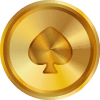30.
enero de 2024
El TJCE se ocupa de las reclamaciones de recuperación del juego ilegal en línea
Los tribunales civiles alemanes ya han ordenado a los proveedores ilegales de juegos de azar en línea que devuelvan a los consumidores las pérdidas del juego cientos de veces. Los jueces del Tribunal de Justicia de las Comunidades Europeas (TJUE) también se ocupan actualmente de esta cuestión. Si allí se anuncia una sentencia favorable al consumidor, se reforzarían enormemente los derechos de los jugadores alemanes. Sin embargo, aún no está claro cuándo se anunciará una decisión.
El TJCE aborda una demanda contra la empresa operadora de Lottoland
En concreto, el Tribunal de Justicia de la Unión Europea se ocupa de una demanda interpuesta por un jugador alemán contra European Lotto and Betting Ltd y Deutsche Lotto- und Sportwetten Ltd, con sede en Malta. Esta última empresa gestiona, entre otras cosas, el popular sitio web Lottoland en Alemania.
Lottoland no es un punto oficial de aceptación de lotería, sino una lotería secundaria. Esto significa que allí se pueden realizar apuestas sobre el resultado de los sorteos de lotería. Además, Lottoland también ofrece juegos de máquinas virtuales, las llamadas tragamonedas. Aunque la empresa tiene una licencia de juego en Malta, todavía no la tiene en Alemania.
En general, en este país hubo una prohibición total de la mayoría de los juegos de azar en línea hasta 2021. Sólo las apuestas deportivas formaron parte de una zona gris, y los primeros proveedores de apuestas deportivas en línea no recibieron licencias a nivel nacional hasta octubre de 2020. Además, en 2012 Schleswig-Holstein fue el único estado federado que permitió el juego en línea. Sin embargo, a las empresas autorizadas allí sólo se les permitía dirigirse a los residentes del estado más septentrional del país.
Los jueces del TJCE tienen que decidir sobre esto
El demandante alega ahora que los contratos entre el jugador y el demandado nunca fueron válidos debido a la inadmisibilidad de la oferta de juego. Por lo tanto, el demandante exige el reembolso de todas las pérdidas de juego que sufrió mientras participaba en juegos de tragamonedas en línea y loterías secundarias.
El demandado, sin embargo, argumenta que era y sigue siendo legal en Alemania debido a la libertad de prestación de servicios de la UE a través de su licencia de juego maltesa. La libertad de prestación de servicios de la UE regula que las empresas de un país de la UE puedan ofrecer sus servicios en toda la unión económica. Ahora los jueces del TJUE tienen que decidir qué argumento seguir. Para ello, un tribunal maltés les presentó un total de siete preguntas.
¿Cuándo se anunciará un veredicto?
Los observadores del proceso dan por sentado una decisión favorable al consumidor, ya que los jueces del Tribunal de Justicia de la Unión Europea ya dejaron claro en el pasado que las leyes nacionales sobre juegos de azar pueden tener mayor peso que la libertad de prestación de servicios de la UE debido a su naturaleza protectora del consumidor. .
A este respecto, es perfectamente concebible que los jueces del TJUE decidan que el jugador tiene derecho a recibir el reembolso de sus pérdidas en el juego y que la empresa demandada era y es ilegal en Alemania a pesar de su licencia maltesa. Esta decisión podría beneficiar a cientos de miles de jugadores de toda Europa.
30.
Jan 2024
ECJ DEALS WITH CLAIMS FOR RECOVERY FROM ILLEGAL ONLINE GAMBLING
German civil courts have already ordered illegal online gambling providers to pay back gambling losses to consumers hundreds of times. The judges at the European Court of Justice (ECJ) are currently also dealing with the issue. If a consumer-friendly ruling is announced there, it would enormously strengthen the rights of German gamblers. However, it is still unclear when a decision will be announced.
ECJ deals with lawsuit against Lottoland operating company
Specifically, the European Court of Justice is dealing with a lawsuit brought by a German gambler against European Lotto and Betting Ltd and Deutsche Lotto- und Sportwetten Ltd, based in Malta. The latter company operates, among other things, the Lottoland website, which is popular in Germany.
Lottoland is not an official lottery acceptance point, but rather a so-called secondary lottery. This means that bets on the outcome of lottery draws can be placed there. In addition, Lottoland also offers virtual machine games, so-called slots. Although the company has a Maltese gaming license, it has not yet been licensed in Germany.
In general, there was a total ban on most online games of chance in this country until 2021. Only sports betting was part of a gray area, with the first online sports betting providers only receiving nationwide licenses in October 2020. In addition, in 2012, Schleswig-Holstein was the only federal state to allow online gambling. However, companies licensed there were only allowed to target residents of the nation's northernmost state.
The ECJ judges have to decide on this
The plaintiff now argues that the contracts between the gambler and the defendant were never valid due to the inadmissibility of the gambling offer. The plaintiff is therefore demanding reimbursement for all of the gambling losses he suffered while participating in online slot games and secondary lotteries.
The defendant, however, argues that it was and continues to be legal in Germany due to the EU freedom to provide services through its Maltese gaming license. The EU freedom to provide services regulates that companies from an EU country are allowed to offer their services throughout the economic union. Now the ECJ judges have to decide which argument to follow. To this end, a Maltese court submitted a total of seven questions to them.
When will a verdict be announced?
Process observers are assuming a consumer-friendly decision, as the judges at the European Court of Justice have already made it clear in the past that national gambling laws can be given greater weight than the EU freedom to provide services due to their consumer-protecting nature.
In this respect, it is entirely conceivable that the ECJ judges will decide that the gambler is entitled to reimbursement of his gambling losses and that the defendant company was and is illegal in Germany despite its Maltese license. This decision could benefit hundreds of thousands of gamblers from all over Europe.
30.
Jan 2024
EUGH BEFASST SICH MIT RÜCKFORDERUNGSANSPRÜCHEN AUS ILLEGALEM ONLINE-GLÜCKSSPIEL
Deutsche Zivilgerichte haben illegale Online-Glücksspielanbieter bereits hundertfach zur Rückzahlung von Spielverlusten an Verbraucher verurteilt. Momentan befassen sich auch die Richter am Europäischen Gerichtshof (EuGH) bereits mit der Thematik. Sofern dort ein verbraucherfreundliches Urteil verkündet wird, würde dies die Rechte von deutschen Glücksspielern enorm stärken. Wann eine Entscheidung verkündet wird, ist bislang allerdings unklar.
EuGH befasst sich mit Klage gegen Lottoland-Betreibergesellschaft
Konkret befasst sich der Europäische Gerichtshof mit einer Klage eines deutschen Glücksspielers gegen die European Lotto and Betting Ltd und die Deutsche Lotto- und Sportwetten Ltd mit Sitz in Malta. Die letztgenannte Firma betreibt unter anderem die in Deutschland beliebte Website von Lottoland.
Lottoland ist keine offizielle Lottoannahmestelle, sondern eine sogenannte Zweitlotterie. Das bedeutet, dass dort Wetten auf den Ausgang von Lotterieziehungen abgeschlossen werden können. Darüber hinaus bietet Lottoland auch virtuelle Automatenspiele, sogenannte Slots, an. Das Unternehmen besitzt zwar eine maltesische Glücksspiel-Konzession, ist jedoch in Deutschland bislang nicht lizensiert worden.
Generell gab es hierzulande bis 2021 ein Totalverbot für die meisten Glücksspiele im Internet. Lediglich Sportwetten waren Teil eines Graubereichs, wobei die ersten Online-Sportwettenanbieter auch erst im Oktober 2020 bundesweit gültige Lizenzen erhielten. Darüber hinaus erlaubte Schleswig-Holstein 2012 als einziges Bundesland Online-Glücksspiel. Dort lizensierte Unternehmen durften sich allerdings auch nur an Bewohner des nördlichsten Bundeslands der Nation richten.
Darüber müssen die EuGH-Richter entscheiden
Die Klägerseite argumentiert nun, dass die Verträge zwischen dem Glücksspieler und der Beklagten aufgrund der Unzulässigkeit des Glücksspielangebots nie gültig waren. Daher fordert der Kläger die Erstattung seiner vollständigen Spielverluste, die er im Rahmen der Teilnahme an Online-Automatenspielen und Zweitlotterien erlitten hat.
Die beklagte Partei argumentiert hingegen, dass sie aufgrund der EU-Dienstleistungsfreiheit durch ihre maltesische Glücksspiellizenz auch in Deutschland legal gewesen sei und weiterhin ist. Die EU-Dienstleistungsfreiheit regelt nämlich, dass Unternehmen aus einem EU-Land ihre Dienstleistungen in der gesamten Wirtschaftsunion anbieten dürfen. Nun müssen die EuGH-Richter entscheiden, welcher Argumentation sie folgen. Dafür wurden ihnen insgesamt sieben Vorlagefragen durch ein maltesisches Gericht vorgelegt.
Wann wird ein Urteil verkündet?
Prozessbeobachter gehen von einer verbraucherfreundlichen Entscheidung aus, da die Richter am Europäischen Gerichtshof bereits in der Vergangenheit deutlich gemacht haben, dass nationale Glücksspielgesetze aufgrund ihres verbraucherschützenden Charakters höher gewichtet werden können als die EU-Dienstleistungsfreiheit.
Insofern ist durchaus denkbar, dass die EuGH-Richter entscheiden, dass der Glücksspieler Anspruch auf die Rückerstattung seiner Spielverluste hat und das beklagte Unternehmen trotz seiner maltesischen Lizenz in Deutschland illegal war und ist. Von dieser Entscheidung könnten Hunderttausende Glücksspieler aus ganz Europa profitieren.
Traducción automática:















